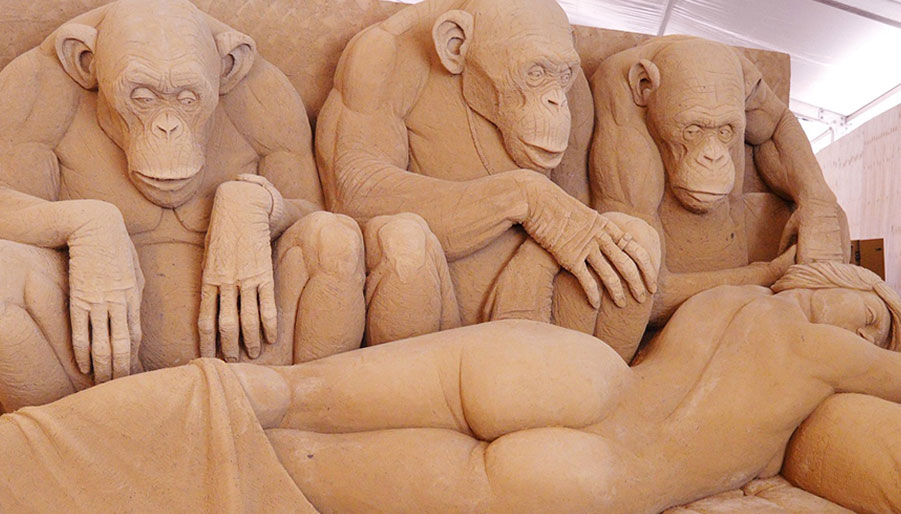What is beauty? What is the experience of beauty?
Philosophers, both in the East and West, have tried to address this subject: in the West, Plato and Kant, Schopenhauer, Nietzsche and Hegel; in the East, Lao Tzu, Confucius, Chuang Tzu, and more recently Cai Yanpei, Wang Guowei, and Zhu Guangqian.
Esthetics is a branch of philosophy. There is so much written on the subject, and it is so complex, that it can be completely bewildering. But for ordinary people, the core question is simple: is beauty subjective or objective?
In general, philosophers fall into three camps:
- the objective, who regard beauty as one of the attributes of things, which exists in nature
- the subjective, who regard beauty as the activity of the awareness of the beholder, projected onto external things
- the in-between, who regard beauty as being a combination of objective and subjective features.
Each camp can produce a lot of evidence in favor of their point of view.
The objective camp finds beauty is the essence of the subject. It is independent of outside perception. For example, birds and flowers in nature or the rainbow in the sky has essence of beauty.
The subjective camp takes beauty to be in the eye of the beholder. It could be through the projection of the beholder’s feelings. For an ape in a zoo, after all, which is more beautiful: a beautiful human girl, or a female ape?
There can be many points of view: but is there only one truth?
Research into esthetics throughout history has one fundamental blind spot: the idea of the beautiful object is always focused on the level of matter, the material body. But, as we have said, everything has three aspects: matter, energy, and information.
To understand beauty, we have to get beyond the material level to the levels of energy and information. In China, philosophers Lao-tzu and Chuang-tzu, have touched on this. But their ideas were never developed fully.
If we approach esthetics from the energy and information level, we can integrate the point of view of all three camps.
From the objective point of view, what we sense as beauty is from the Chi aspect of all living things. Our feelings are based on the chi energy connection between us and all natural living things. In addition, all things living or man-made have a form. Since form defines energy, when the form is good, it projects harmonious chi that we sense as beauty.
From the subjective point of view, why does the male ape, find the female ape more beautiful than the female human?
This is because of resonance. When the frequency of the Chi is similar, it creates resonance. Thus the Chi between the two apes, resonate more than between people and apes. Resonance creates empowerment, that’s why male apes find female apes more beautiful.

To understand beauty, we have to get beyond the material level to the levels of energy and information. Image by Pixabay
When you fall in love with someone, and your character and temperament are similar, naturally you feel that the other person is more beautiful: this is the effect of resonance. Thus, one’s feeling about what is beautiful is related to cultural, educational, economic, and other factors: the experience of beauty depends on attunement, and the attunement is modified by these factors.
Similarly, an original painting is more beautiful than a reproduction or a print, because it contains the energy information of the artist. We may like a painting when we see a reproduction, but will often be surprised when we go to the gallery and see the original.
To fully understand beauty we have to go beyond the physical aspect of things and get into the higher chi energy aspect of things.
All things have chi energy and form. Beauty is perceived by how much the chi energy and form resonates with the beholder.
In terms of the experience of beauty, there is no higher or greater: the experience itself, meaning, the recognition of beauty, is the same.
In the same way, a love between a prince and princess is no higher than the love between a country boy and a country girl. The power of feeling is the same, despite the difference in social class.
In other words, although we are beholding a material form, our response is from the level of Chi and information. We are responding to Chi and information that manifest in and through the material form, rather than to the form alone.
All Dr. Hsu talks on Feng Shui

